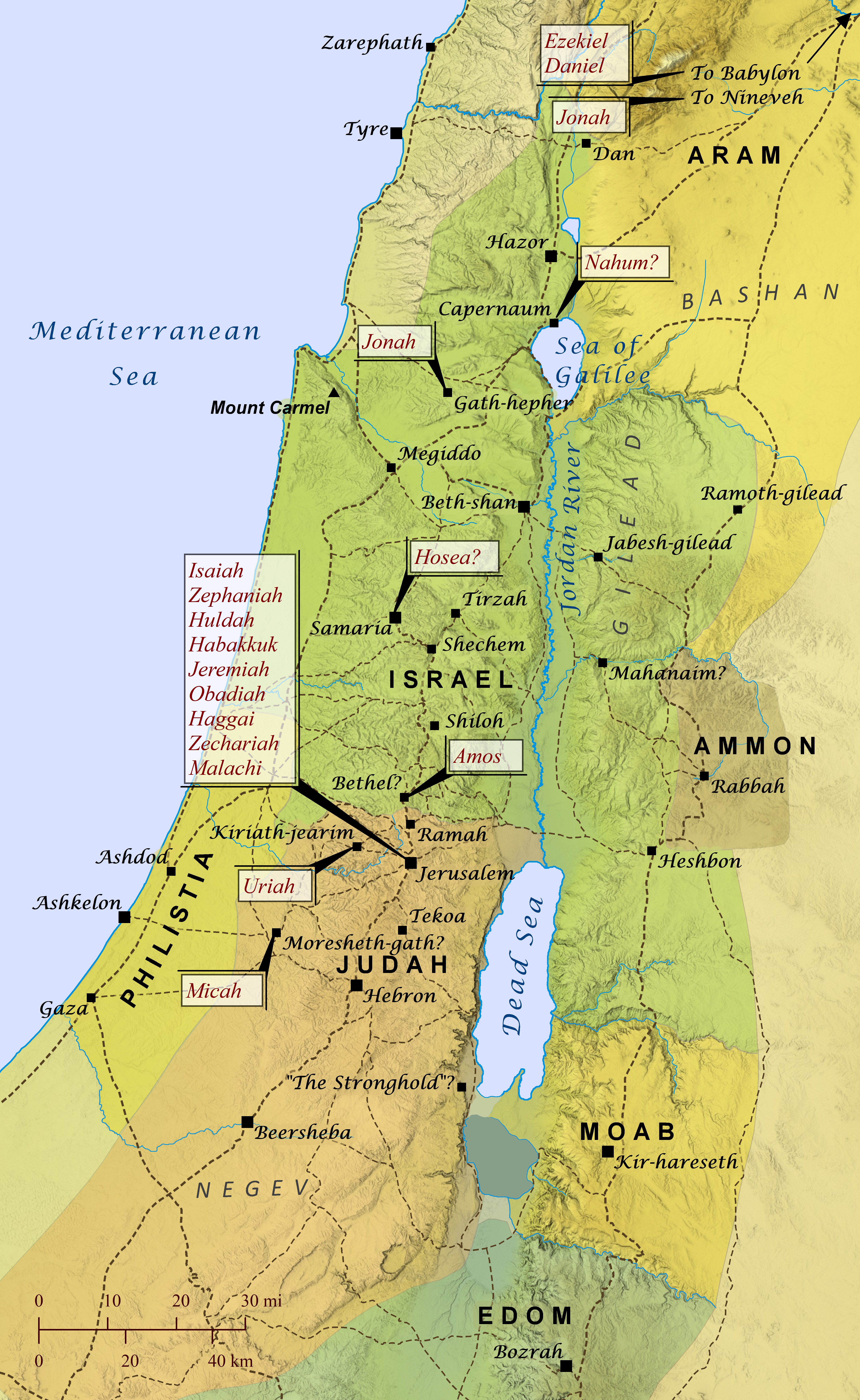Readers’ Version
Literal Version
1 Here is the message that the prophet Havakkuk (Habakkuk) saw:
2 For how long, Yahweh, must I call for help before you listen?
≈ I cry out about the violence, but you haven’t rescued me.
3 Why do I have to keep seeing injustice and looking at trouble?
≈ Destruction and violence are all around—there’s such strife, and conflicts keep happening.
4 That’s why the law is paralysed and why justice doesn’t prevail—
because those who do good are surrounded by wicked people, so justice gets perverted.
5 Watch the other countries and observe them, and be astonished and amazed,
because I’m about to do something in your time
that no one will believe would happen, even if they were told about it.[ref]
6 Listen, I’m about to stir up the Babylonians[ref]—
that fierce and impetuous empire
that marches around the world to seize cities for themselves.
They go by their own rules to boost their own pride.
8 Their horses are faster than leopards
and more menacing than the wolves in the evening.
So their horsemen arrive from a great distance, then come charging—
they fly like an eagle that’s swift to devour.
hordes of faces advancing like the wind in the wilderness.
They gather captives like sand.
10 They scoff at kings, and rulers are just a joke to them.
They laugh at fortresses as they pile soil up around them and capture them.
11 Then they sweep past like the wind and move on.
They become guilty of thinking that their own strength is their god.
12 Yahweh, aren’t you the eternal God?
You’re my heavenly protector who won’t die.
Yahweh, you’ve appointed them for judgement.
≈ Our rock, you’ve established them for punishment.
13 Your eyes are too pure to endure seeing evil,
≈ and you’re not able to look on wrongdoing with favour.
Why then have you tolerated those who are treacherous?
≈ Why are you silent while the wicked destroy those who are more godly than them?
14 You’ve made those people like the fish of the sea—
like reptiles that have no ruler.
15 The invader brings them all up with a fishhook.
≈ He drags them up with his fishing net.
He catches them all in his drag net,
which makes him happily celebrate.
16 Therefore he sacrifices to his fishing net
≈ and burns incense to his drag net,
because it’s his net that gives him plenty of food,
≈ and his food is the richest kind.
17 So will he keep harvesting with his net?
≈ Will he continue destroying nations without mercy?
2 Until when Oh_YHWH have_I_cried_for_help and_not you_will_hear I_cry_out to_you violence and_not you_save.
3 To/for_what see_me wickedness and_trouble do_you_look_at and_destruction and_violence at_before_me and_ strife _he/it_was and_contention it_arises.
4 On/upon/above/on_account_of//he/it_went_in yes/correct/thus/so the_law it_grows_numb and_not it_comes_forth to_ever justice if/because the_wicked is_surrounding DOM the_righteous on/upon/above/on_account_of//he/it_went_in yes/correct/thus/so justice it_comes_forth perverted.
5 See in/on/at/with_nations and_see and_astonished be_astonished if/because a_deed I_am_about_to_do in/on/at/with_days_of_your(pl) which_not you(pl)_will_believe if/because it_will_be_recounted.
6 If/because look_I am_about_to_raise_up DOM the_ones_from_Kasdiy the_nation the_bitter and_the_impetuous the_march through_breadth_of the_earth to_seize dwellings which_not to_him/it.
7 is_terrifying and_feared it from_him/it justice_of_his/its and_dignity_of_his/its it_comes_forth.
8 And_swifter than_leopards horses_of_his/its and_menacing than_wolves_of the_evening horsemen_of_his/its and_charge and_horsemen_of_his/its from_afar they_come they_fly like_eagle which_makes_haste to_devour.
9 All_of_them for_violence it_comes the_totality_of faces_of_their wilderness_wind_forward and_gather like_the_sand captive[s].
10 And_he in/on/at/with_kings it_derides and_rulers are_laughter to_him/it it to/from_all/each/any/every fortress it_laughs and_heap_up earth and_capture_it.
11 Then it_swept_on a_wind and_pass_on and_become_guilty the_one_who strength_of_their_own as_god_of_his/its.
12 Am_not are_you from_east Oh_YHWH god_of_my holy_of_my not we_will_die Oh_YHWH to_judgement appointed_them and_rock to_punish established_them.
13 you_are_too_pure_of eyes too_to_see evil and_look to mischief not you_are_able to/for_what do_you_look_at those_who_act_treacherously are_you_silent in/on/at/with_swallows_up a_wicked_person a_person_righteous more_than_they.
14 And_made humankind like_fish_of the_sea like_crawling_things which_not a_ruler in/on/over_him/it.
15 All_of_them in/on/at/with_hook he_brings_up drags_out_them in/on/at/with_net_of_his and_gathers_them in/on/at/with_fishing_net_of_his on/upon/above/on_account_of//he/it_went_in yes/correct/thus/so he_rejoices and_glad.
16 On/upon/above/on_account_of//he/it_went_in yes/correct/thus/so he_sacrifices to_net_of_his and_makes_offerings to_fishing_net_of_his if/because in/on/at/with_them is_rich portion_of_he and_food_of_his is_fat.
17 For fore will_he_empty net_of_his and_continually to_destroying nations not will_he_spare.

